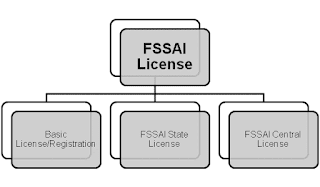In order to carry out the correct treatment of
waste, it is necessary to make use of appropriate technologies. Fortunately,
with recent innovations, this is not a problem. We have the necessary resources
at our disposal, just look for the right methods and companies.
Although the population does not always know, it is
important to be aware of the equipment used to treat waste. It is also
essential to learn about the Solid Waste Policy , in addition to the Solid
Waste Policies of states, municipalities and the Federal District that need to
be compatible with environmental legislation.
Solid waste can be: domestic, civil construction,
hospital, industrial, radioactive, electronic, agricultural. Find out more
about the technologies used in the treatment of solid
waste Management!
The characteristics
of biochemical treatment
In the treatment of solid residues of biochemical
character, the matter is usually decomposed by bacteria and fungi. Depending on
the technology applied, the process breaks down the larger molecules. The
biochemical treatment by biodigestion uses biodigestors and is used in organic
solids from the city and in the countryside or in residues with a high amount
of cellulose. This method usually supplies the biogas plants.
There is also the biochemical treatment by composting
that requires the presence of oxygen in the process. It can be performed in
conjunction with the first type of treatment in some companies and enterprises.
The Composting Plant located in the Italian city of
Salerno applies this type of treatment successfully. Investing little money and
organizing tailings in a more controlled environment.
The
techniques used in mechanical treatment
Through physical operations, technologies in the
treatment of solid waste of a mechanical nature integrate the sorting plants
and its purpose is to separate or reduce the size of the waste. Various
techniques can be used, such as:
Then classification, separation or compaction is
carried out. The treatment also works with changes in physical states, such as
condensation, evaporation or sublimation.
Densifiers, filters, reactors, decanters, rotating
screens are some equipment used in this form of treatment.
Thermal
technologies in the treatment of solid waste
In this case, ovens and pyrolysis reactors are
used, for example, since the purpose is to burn the waste. They are subjected
to high temperatures (reaction temperature) for a specific period (reaction
time). It is a controlled process to avoid the emission of polluting gases into
the atmosphere.
Among the heat treatment models, we can mention:
drying, gasification, pyrolysis, incineration, plasma. Thermal plasma can be
used for hazardous waste , such as medical waste, incineration ash, sludge,
scrap metal, waste from the production of aluminum and other metals. It is a
very advanced technology.
Heat is released over the waste, causing the
dissociation of the bonds of the waste molecules in any state (solid, liquid or
gaseous), organic or inorganic, dangerous or inert. In this way, the chemical
composition of the materials is modified, forming simpler substances.
In the two-chamber process, the materials are
placed in a first chamber in which the inorganic portion is melted and the
organic portion is aerated. Liquids and gases are thrown into another chamber
through the plasma reactor. The gases go through a washing process while the
incineration consumes volatile metals and gases with acid.
Read also: Are you
looking for Auditors in
UAE
There is a wide diversity of technologies used in
the treatment of solid waste . Only a specialized company will know how to
define which treatment and destination are the most appropriate.
Do you already have specialized consultancy for
this? Take the opportunity to enjoy our Facebook page and see how we can help
you manage the waste you produce correctly!


Comments
Post a Comment